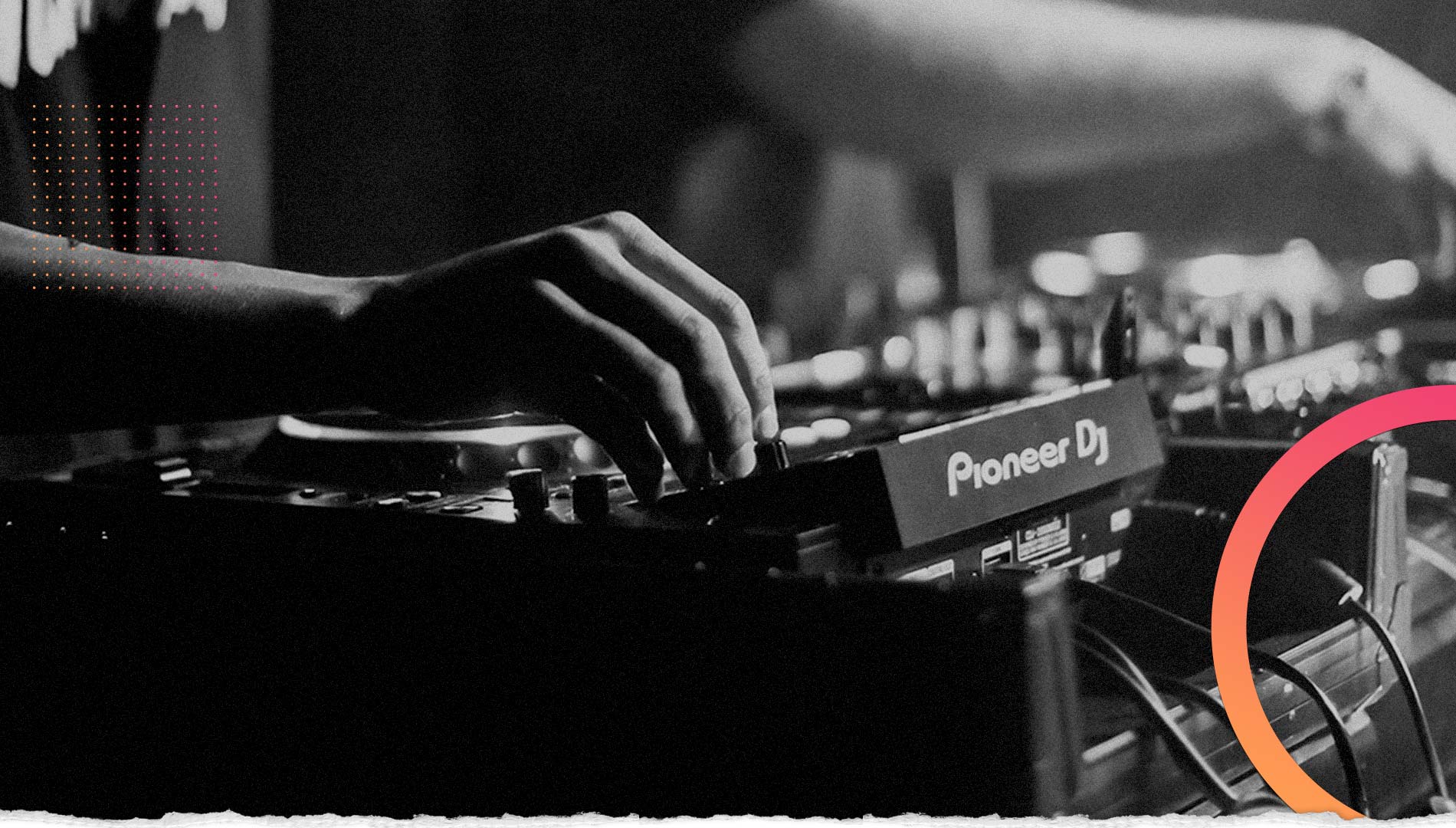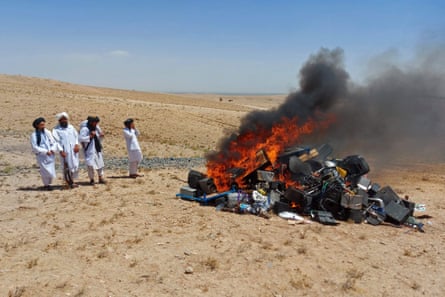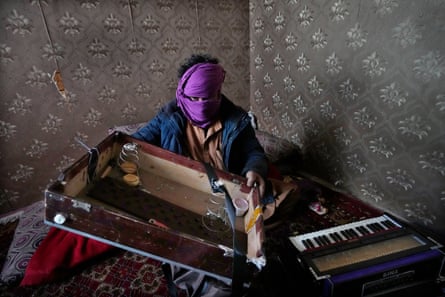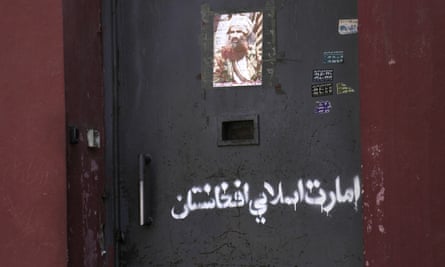Listeners:
Top listeners:
-
 play_arrow
play_arrow
Electromusic FM RADIO ONLINE 24/7
-
 play_arrow
play_arrow
London Calling Podcast Yana Bolder
When the music stops: how the Taliban’s fear of art is killing Afghan culture | Global development

When the Taliban moved closer to Kabul in the early days of August 2021, a series of unusual advertisements flooded the shopping pages on Afghan social media. Musicians were putting their instruments and equipment – the tools of their trade – up for sale.
Many were being offered for a fraction of what they were worth. Yet, even in a country with an immense love for music, there were few buyers. “I knew from past experience what they would do with people like us [musicians], and our instruments. They have a dislike for our art and culture,” a 49-year-old singer from the north of Afghanistan who wished only to be identified as Farhan, told the Guardian.
Farhan was a sought-after musician in his town during festivals, weddings and social gatherings for his mesmerising renditions of folk songs played on a damboora, a traditional Afghan musical instrument. But when the insurgents marched closer to his city, he started receiving calls and social media messages from Taliban commanders accusing him of causing “moral corruption”.
“I knew they would not spare me, so I had to say farewell to my instruments and leave the country,” he says. Some musicians tried to sell their instruments, he adds, while others destroyed them rather than letting them fall into the hands of the Taliban. “I buried my instruments in the fields.”
It was foresight that saved Farhan’s life. Some of his colleagues, such as the folk singer Fawad Andarabi, were less fortunate, murdered by the Taliban just weeks after the group seized power.
Since taking over, the Taliban have imposed their rigid interpretation of Islam, restricting and even criminalising music and arts – some of the most integral aspects of Afghan culture.
In July, the Taliban’s ministry for promotion of virtue and prevention of vice shared photos of a bonfire of “illegal” musical instruments that had been seized.
While setting the equipment on fire, Aziz Rahman Muhajir, head of the vice and virtue department in Herat, once again reminded Afghans that the sale of musical instruments was a punishable offence.
When Farhan saw the images, he was heartbroken. “It felt as if they were burning parts of my body. My soul was on fire.”

“Of the many aspects of life affected by the war in Afghanistan, I would say art and culture are among the worst affected,” says Omaid Sharifi, co-founder of ArtLords, a collective that has worked to revive Afghan art and culture since 2014.
The group continues to operate in exile as well as through discreet artist networks within Afghanistan. “When the Soviets came, they tried to promote their own narratives about Afghan culture. They were followed by the mujahideen groups, and the first thing they did when they took over Kabul was to loot the national museum. It was the frontline of their civil war,” he says.
The Taliban followed soon after, Sharifi says, and they were the worst of all. “Art and culture does not exist in their minds; they blew up the Buddhas of Bamiyan and other statues, destroyed precious artworks and, of course, musical instruments.”
In the two decades after the fall of the Taliban’s first administration in 2001, Afghan art, music and culture not only revived but thrived. Artists brought out their paint brushes, music was created and taught to the younger generation in places such as the Afghanistan National Institute of Music, where the first Afghan female orchestra was formed.
“It quickly emerged as a renaissance of its own,” says Sharifi. “Afghans welcomed it and participated in creating new art, music and other forms of culture, to express their feelings, to inspire hope and to feel happy.”
after newsletter promotion

Art, poetry, music are fundamental to Afghan identity. “If you dig five metres in any part of this country, you will find some artefact that shows it’s connection to art and music,” says Sharifi.
It wasn’t uncommon for friends to get together on Thursday evenings (a weekend in Afghanistan) for a social gathering, accompanied by endless cups of chai and a symphony of music played by professional musicians such as Farhan.
“It gave us hope that even in times of conflict, when people get a chance they were willing to break away from the cycle of violence to engage with their culture. We were making progress but we lost it all, back to almost zero,” Sharifi says.
And the longer the Taliban control Afghanistan, Farhan warns, the deeper the country will sink into “cultural poverty”. “Just as they have closed the gates of universities and schools to women – which is half of our society – this is another act that will destroy the country,” he says.

The Taliban’s dislike for music and art, Sharifi says, comes from its power to transform mindsets. “It can inspire change among the people. It can make people think critically and ask questions, which they are afraid of. But most of all, it can make people hopeful – that’s the power of art and music. And when you are hopeful, you will try to change yourself, your community, your environment – and they are really afraid of this.”
Farhan adds: “Because art itself evokes a kind of awakening and freedom in societies. Music especially can tie people from different parts of society together, bringing them closer, more united. So it is no surprise that they fear the art and music.”
“Art and music are a threat to their terror regime,” says Sharifi. “This land, this country has been at a crossroads of cultures throughout history, and I don’t think it will be easy for groups like the Taliban to completely take that away. They cannot force a whole country to abandon its identity.”
Written by: Soft FM Radio Staff
Afghan Art Culture development fear Global killing music stops Talibans
Similar posts
Electro Music Newsletter
Don't miss a beat
Sign up for the latest electronic news and special deals
EMAIL ADDRESS*
By signing up, you understand and agree that your data will be collected and used subject to our Privacy Policy and Terms of Use.
Podcast episodes
 Invalid license, for more info click here
Invalid license, for more info click here
Copy rights Soft FM Radio.




